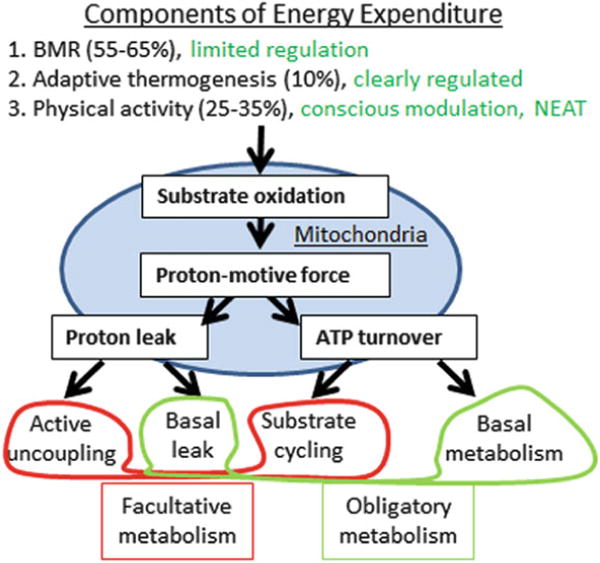Fig. 3.

Components of energy expenditure. Oxidative processes result in a proton-motive force in the mitochondrion used to generate ATP, even though basal proton leaks are observed that “wastes” energy. ATP production and basal proton leaks together account for obligatory metabolism, required for minimal bodily functions. The active uncoupling of proton-motive force from ATP production is used to generate heat, e.g., in the brown adipose tissue. And uncoupling protein 1 (UCP1) is a well-studied example for active uncoupling. Substrate cycling also actively contributes to heat production. Together these mechanisms account for facultative metabolism, which is optional and not used for baseline maintenance of bodily functions, e.g., at thermoneutral conditions
